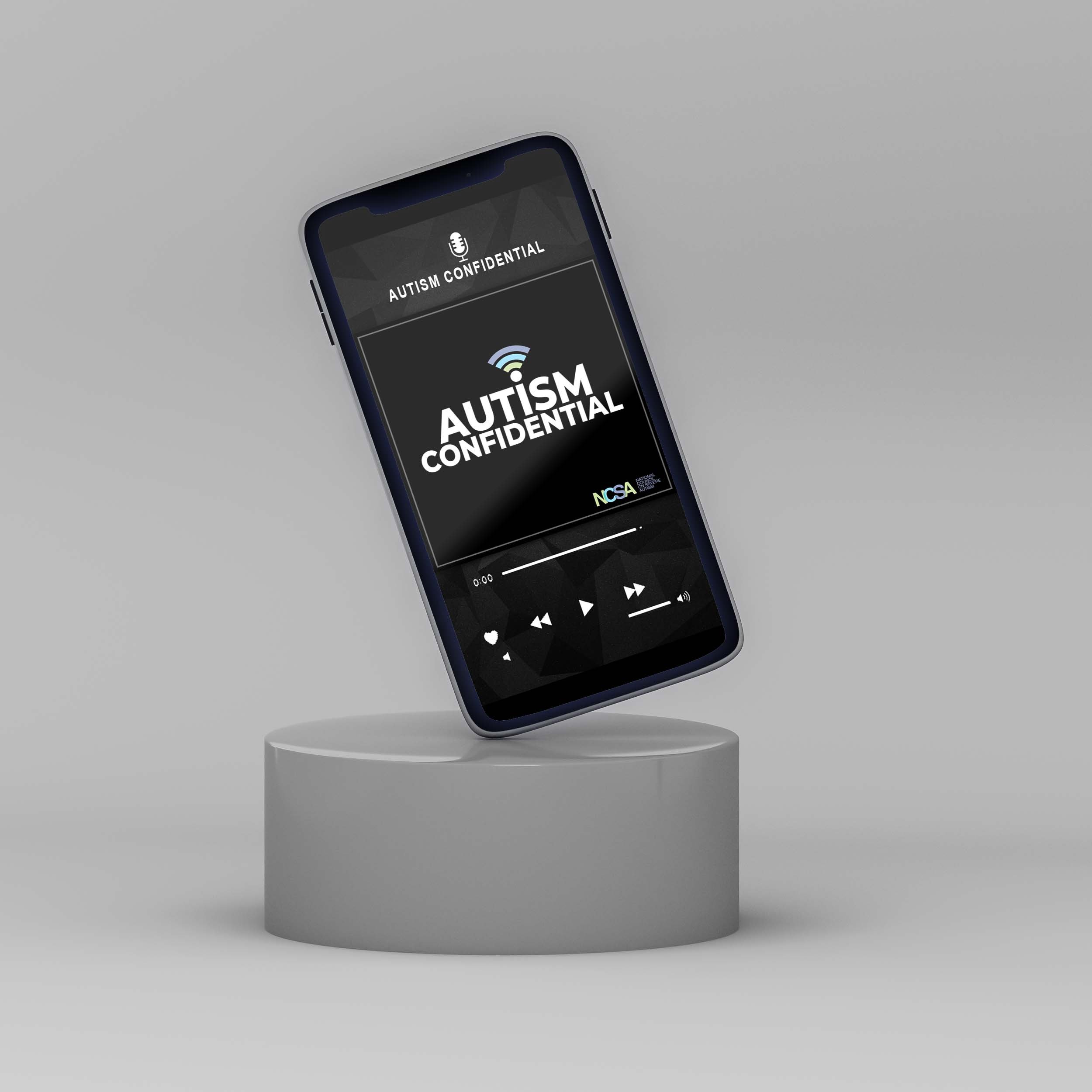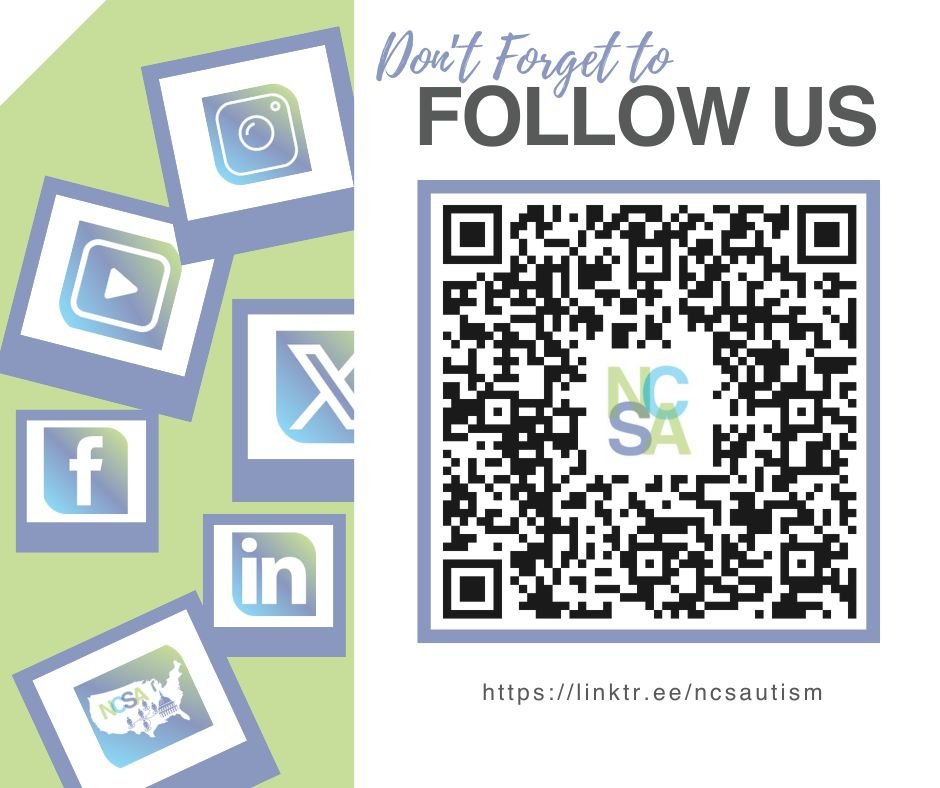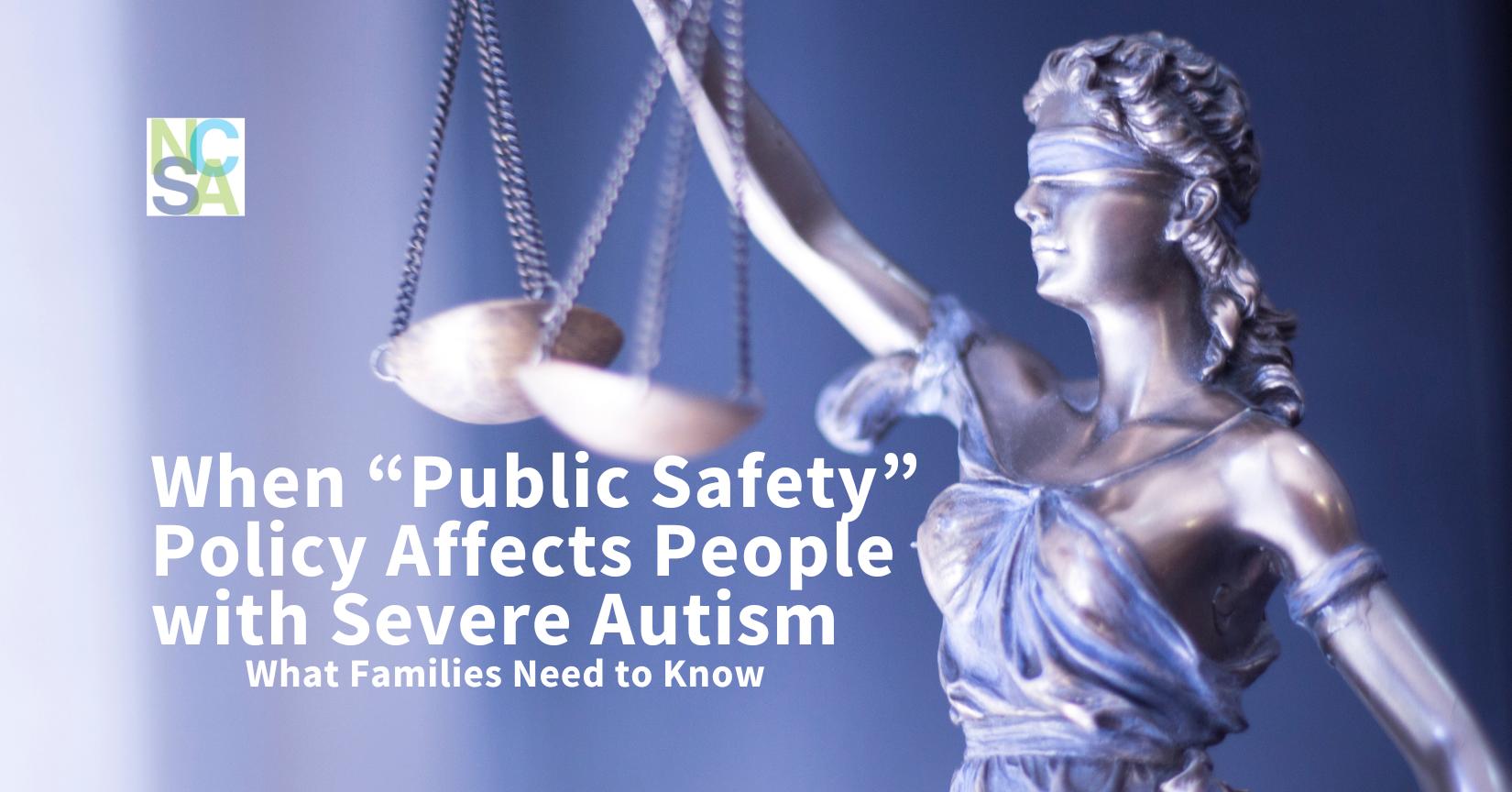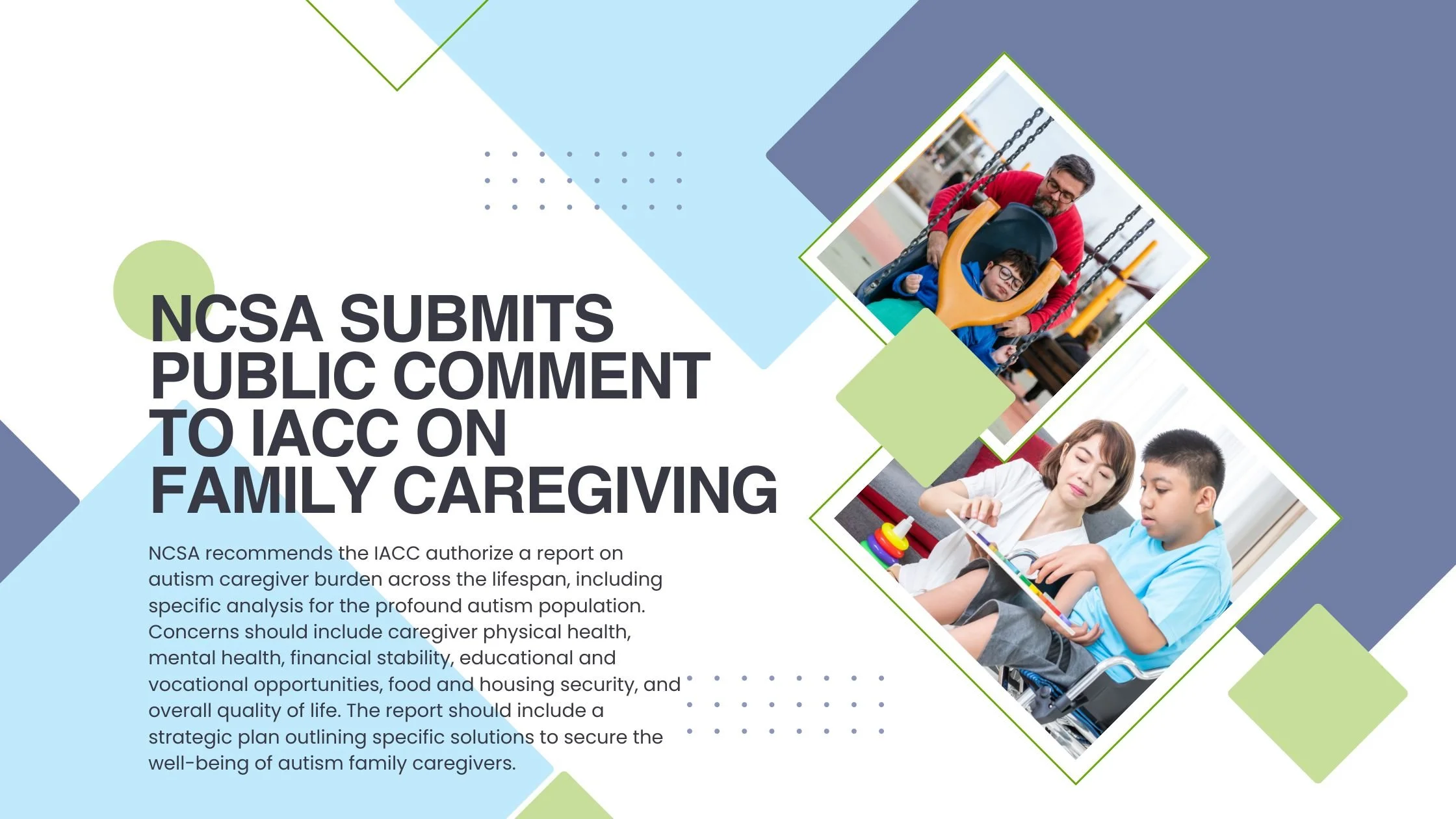NCSA Blog
As Tennessee’s Chattanooga neglect case sparks debate, families of people with severe autism highlight a deeper crisis: denied safety equipment, untrained staff, punitive policies, and systemic failures that create dangerous, nationwide disparities in care and disability rights.
A newly released report from the New Jersey Ombudsman exposes systemic failures in group home oversight, including concealed abuse, unreported critical incidents, underpaid and understaffed care, and investigations that let providers police themselves. These aren’t isolated lapses but signs of a broken system that leaves families in crisis. The New Jersey Chapter of NCSA is responding with strong advocacy—documenting family experiences, demanding transparency, partnering with legislators and journalists, and pushing for meaningful reforms to protect individuals with severe autism.
Sunday night, House Republicans dropped their latest plan for Medicaid reform, and it’s got a lot of people asking: Should we be worried? Should we panic? And what should we be doing? Here’s what you need to know—without the spin.
My daughter shares about as much in common with a Mensa-level PhD candidate as a fish does with a chicken. Nobody’s handing chickens supreme authority to make decisions for fish just because chickens can bawk while fish cannot.
Society never claims that if only fish grew up in chicken-designed “animal-affirming” environments, they’d suddenly take up roosting and learn to crow at sunrise. There’s no assumption that every fish thrives in the same tank conditions, either. Some need fresh water. Others need salt. Certain fish want solitude, others survive best in schools. The important point: experts don’t consult chickens when they want to understand fish. They study the fish themselves. Wild concept, right?
The fundamental flaw in this approach is not that we celebrate independence—it's that we've allowed independence to become a prerequisite for human dignity. The true antidote to eugenic thinking isn't proving that disabled people can be productive; it's rejecting productivity as a measure of human value altogether.
NCSA maintains that:
Severe autism requires special attention and services distinct from other forms of autism
We face an urgent need for innovation in treatment and support across the lifespan
Research into environmental contributors and other potential causes must be pursued through rigorous scientific channels
Policy reforms must address the complex realities of continuous care requirements
Families and caregivers need expanded access to housing, healthcare, and support services
The intersection of privacy rights and protection measures for individuals with severe disabilities presents a complex challenge in disability advocacy. Recent legislation proposed in Kentucky has brought this debate to the forefront, highlighting the critical need for nuanced approaches to safeguarding our most vulnerable populations.
Basic data about autism cases in the U.S. are hard to find. Here are some estimates.
The exponential increase in the autism caseload in the California Developmental Services system, which is limited to cases of autism with substantial developmental disability.
On Thursday, September 12, 2024, the New Jersey chapter of the National Council for Severe Autism (NCSA) held its inaugural in-person mixer. The event was marked by a palpable sense of energy and excitement. Parents of individuals with profound autism from across New Jersey gathered alongside experts in the field to unite with the goal of advancing policy in critical areas and effecting actionable change.
What’s a grassroots network anyway? How can it help me? These are valid questions. Let’s talk about it.
Jail is not the place for someone with developmental disabilities, not anywhere, and certainly not in Tennessee. While most the news coverage on Jillian’s law is referencing the challenges in staffing and facility availability, none are discussing the problem of those individuals who are refused care by hospitals even when beds and staffing are available.
In this new role, Kancir aims to foster authentic recognition of the disparities faced by the severe autism community and partner with other groups to break access barriers, fill service gaps, and enhance the overall quality of life for individuals with severe autism and related disorders.
NCSA recommends the IACC authorize a report on autism caregiver burden across the lifespan, including specific analysis for the profound autism population. Concerns should include caregiver physical health, mental health, financial stability, educational and vocational opportunities, food and housing security, and overall quality of life. The report should include a strategic plan outlining specific solutions to secure the well-being of autism family caregivers.
NCSA joined IDD healthcare leaders in Chicago last week to challenge the status quo of antiquated, siloed health systems – calling for a reimagining of specialized integrated multidisciplinary healthcare. NCSA Policy Director Jackie Kancir attended the One Voice Conference hosted by the American Academy of Developmental Medicine & Dentistry (AADMD).
As part of UCSF’s 2024 Developmental Disabilities Conference, Vikram Jaswal, Professor of Psychology at the University of Virginia, promotes facilitated communication.
People with I/DD will have more choices coming, in spite of the heavy campaigning of ad hominem attacks and fear-mongering false equivalencies in the name of disability “justice.”
NCSA president Jill Escher shares her experience advocating for severe/profound autism on Capitol Hill with four other fierce advocates.
Autism rates in the California DDS system have reach shocking new heights according to data released this week.
NCSA leaders helped write a new review paper highlighting some of the overarching issues affecting individuals and families affected by profound autism, and directed at pediatric clinicians. We thank in particular Dr. Lee Wachtel for leading this effort.
Amid the growing national autism crisis, the Autism CARES Act should be re-invented to address our most pressing needs and explicitly address objectives around profound autism.
NCSA comments in response to the NIMH’s call for comments on co-occurring conditions in autism.
NCSA Position Statements
NCSA has adopted the following positions on pressing issues facing our community.
Personal Safety and Abuse Prevention
Access to Appropriate Health Care and Crisis Care
Medicaid HCBS Residential Policies
Educational Placements
Language, Images and Depictions Concerning Severe Autism
New! Applied Behavior Analysis (ABA)
NCSA Podcast

NCSA National Network

Sign up for our National Grassroots Network
NCSA on Facebook

NCSA is very active on Facebook, please follow us for news and updates.
NCSA YouTube Channel
Video: Act Now for Severe Autism
Learn more at Act Now for Severe Autism.
NCSA Webinars

NCSA Webinar Series - Register
2024 Archive
5/29/24 Crisis Care here
5/15/24 Eileen Lamb here
4/24/24 Behavioral Treatment here
4/10/24 Insurance Coverage for Autism here
3/27/24 Seizures and Epilepsy in Severe Autism here
2/28/24 Discrimination by Design here
2/15/24 Autism’s Rising Rates here
2/8/24 Reauthorization of the CARES Act here
2023 Archive
11/8/23 Autism & Psychiatry: Guide to Navigating Treatment here
10/11/23 Chasing the Intact Mind here
9/13/23 Intro to State Advocacy here
3/14/23 The Case for Profound Autism here
2022 Archive
1/11/22 The Crisis in Crisis Care here
1/27/22 Supported Financial Planning here
2/17/22 ABLE Accounts here
3/11/22 Homeless by Design here
4/14/22 After Parents Are Gone: Building a Circle of Support here
9/23/22 Autism Family Safety here
2021 Archive
2/19/21 What’s Wrong With Facilitated Communication? here
3/25/21 NCSA Policy Summit here
4/27/21 Treating Challenging or Dangerous Behaviors, Part 1: Medical Support here
5/27/21 Treating Challenging or Dangerous Behaviors, Part 2: Insurance here
6/24/21 Treating Challenging or Dangerous Behaviors, Part 3: Behavioral and Sensory Support here.
8/26/21 Transition Plans here.
10/13/21 Reforming the DSM here
NCSA Newsletter
June 2019 here
August 2019 here
January 2020 here
March 2020 here
April 2020 here
June 2020 here
July 2020 here
August 2020 here
September 2020 here
October 2020 here
November 2020 here
December 2021 here
January 2021 here
February 2021 here
March 2021 here
April 2021 here
April 2021 Update here
May 2021 here
June 2021 here
July 2021 here
August 2021 here
September 2021 here
October 2021 here
November 2021 here
December 2021 Research Roundup here
January 2022 here
February 2022 here
March 2022 here
April 2022 here
April 2022 v2 here
April 2022 v3 here
May 2022 here
June 2022 here
July 2022 here
August 2022 (no newsletter)
September 2022 here
October 2022 here
October 2022 v2 here
November 2022 here
December 2022 here
2022 in Review here
January 2023 here
February 2023 here
March 2023 here
March 2023 (CDC) here
April 2023 here
May 2023 here
June/July 2023 here
August 2023 here
September 2023 here
October 2023 here
November 2023 here
December 2023 here









































Most policies are born through good faith, but without direct experience informing those policies, people with severe autism are suffering the negative impacts of unintended consequences. It is long past time to challenge the tired false binaries that dominate our disability discourse: community vs. institution, autonomy vs. guardianship, employment vs. dependency. These are not helpful when they erase nuance and deny the reality that many need 24/7 specialized support, meaningful daily activity, integrated multidisciplinary healthcare, and purpose-built safe housing options.
We must update our definitions of inclusion to account for choice, dignity, safety, and realism.